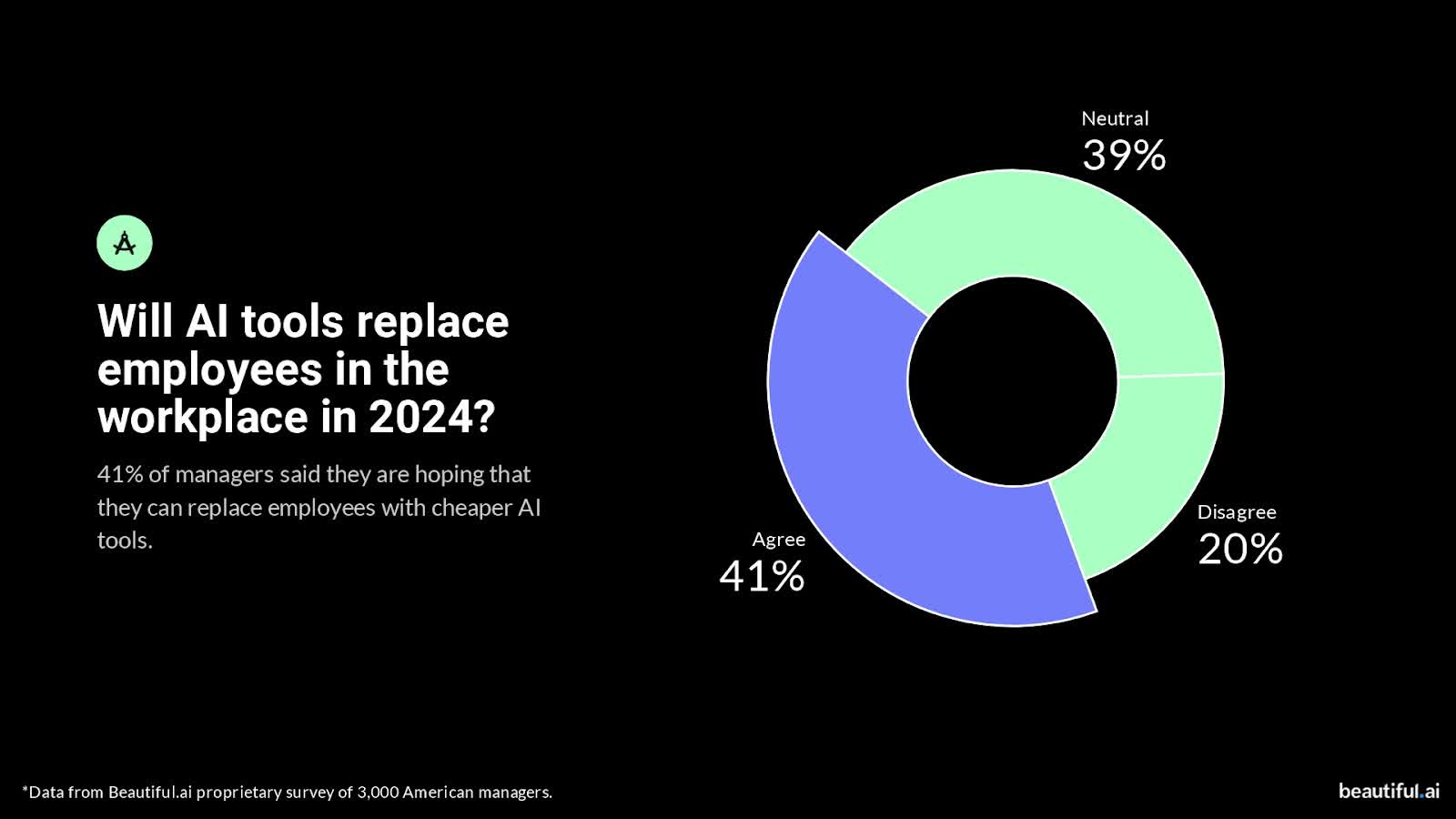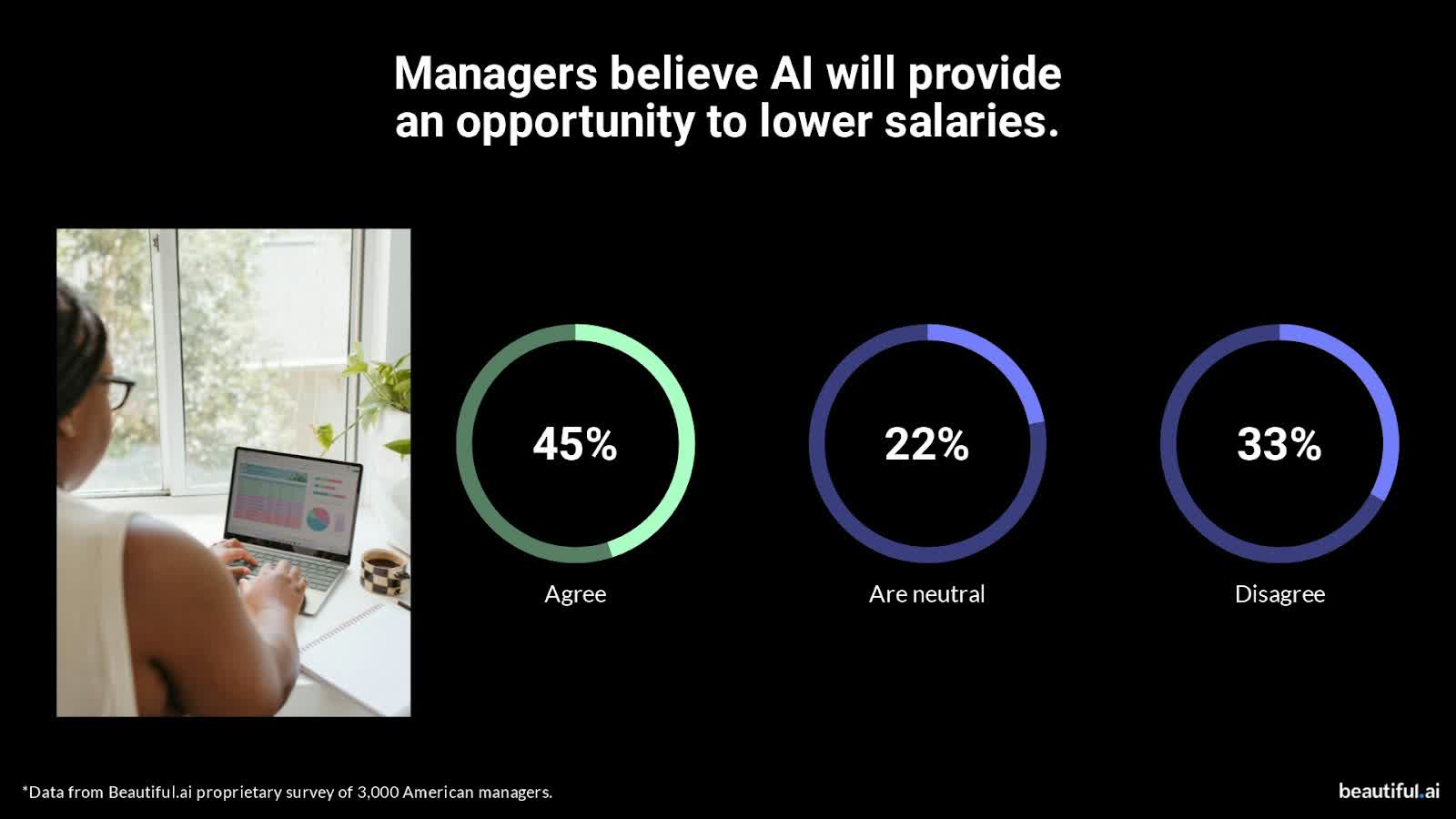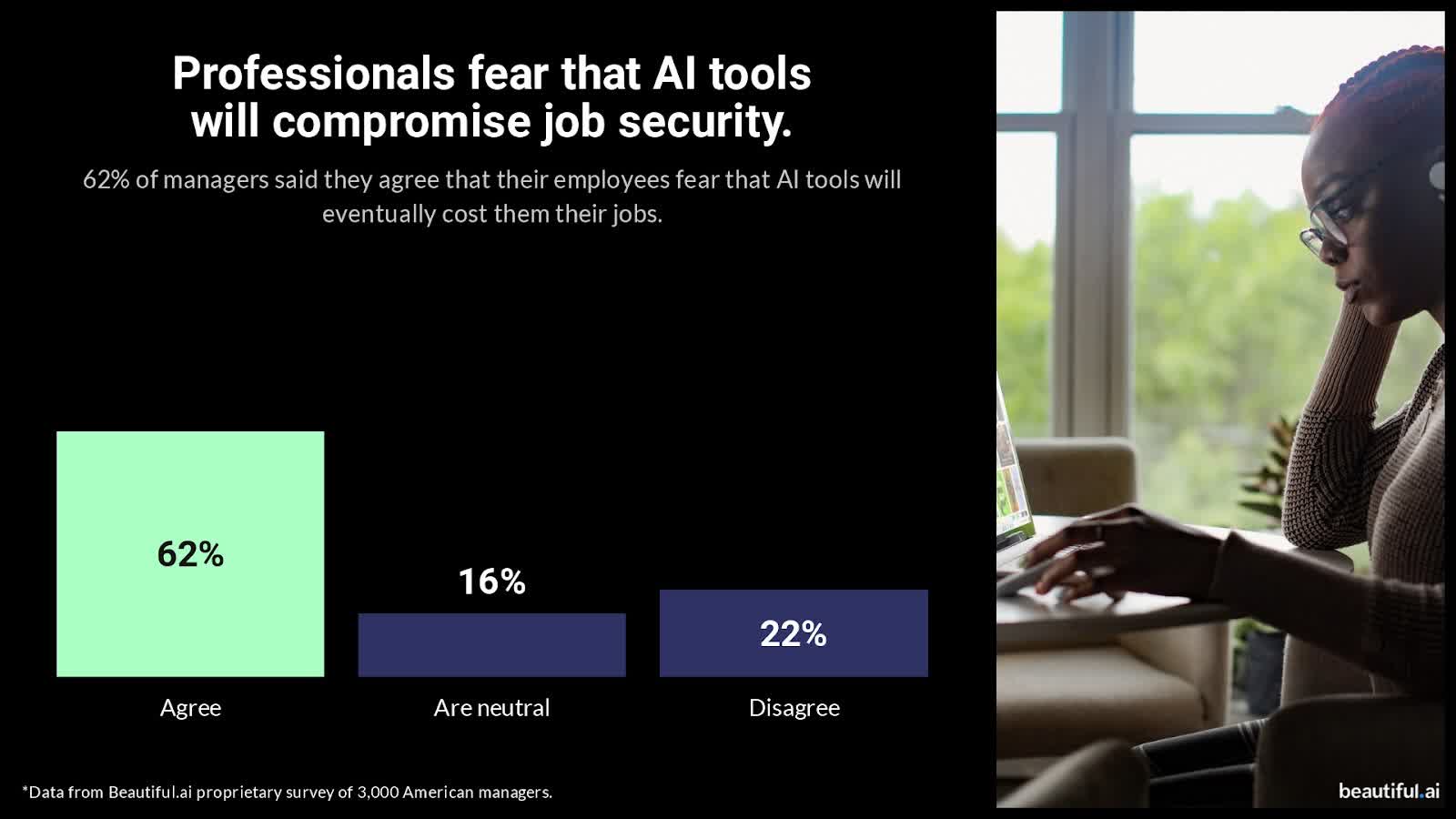A hot potato: A lot of companies try to assuage fears that employees will lose their jobs to AI by assuring them they'll be working alongside the tech, thereby improving efficiency and making their duties less tedious. That claim feels less convincing in light of a new survey that found 41% of managers said they are hoping to replace workers with cheaper AI tools in 2024.

A report by Beautiful.ai, which makes AI-powered presentation software, surveyed over 3,000 managers about AI tools in the workplace, how they're being implemented, and what impact they believe these technologies will have.
The headline takeaway is that 41% of managers said they are hoping that they can replace employees with cheaper AI tools in 2024. This backs up previous reports that looked at potential jobs losses caused by generative AI, including one from September that predicted the technology would replace over 2 million US jobs by 2030. An earlier study claimed that generative AI could affect 300 million jobs globally.
The rest of the survey's results are just as depressing for worried workers: 48% of managers said their businesses would benefit financially if they could replace a large number of employees with AI tools; 40% said they believe multiple employees could be replaced by AI tools and the team would operate well without them; 45% said they view AI as an opportunity to lower salaries of employees because less human-powered work is needed; and 12% said they are using AI in hopes to downsize and save money on worker salaries.
It's no surprise that 62% of managers said that their employees fear that AI tools will eventually cost them their jobs. Furthermore, 66% of managers said their employees fear that AI tools will make them less valuable at work in 2024.
But it's not just workers who feel like they are under threat from AI. Half of all the managers surveyed – 90% of whom say they are already using AI to increase productivity – said they are worried that AI tools will result in lower pay for those in management positions, while 64% said they believe AI's output and productivity are equal to or better than experienced human managers. Moreover, just under half of the participants think AI tools will fuel wage declines across the country.
We've seen huge numbers of layoffs in the tech industry since the start of 2023, and while a lot of that was due to overhiring during the pandemic and the shaky economy, some companies have admitted that the adoption of generative AI played a big part. A lot of firms are jumping on this generative AI bandwagon: 66% of those surveyed said they're using these tools to either enhance worker productivity or improve efficiency.
Despite the results, Beautiful.ai still pushes the "collaborative" angle in its report, but then it is a company that makes a generative AI product. It writes that of those who incorporated AI in the workplace, 60% foresee AI tools replacing elements of their job functions in a positive and productive, rather than threatening, way. The report also notes that the number of managers looking to replace employees with AI has "significantly" reduced since 2023, so that's at least some good news, right?
Masthead: Pixabay
https://www.techspot.com/news/102385-survey-reveals-almost-half-all-managers-aim-replace.html


